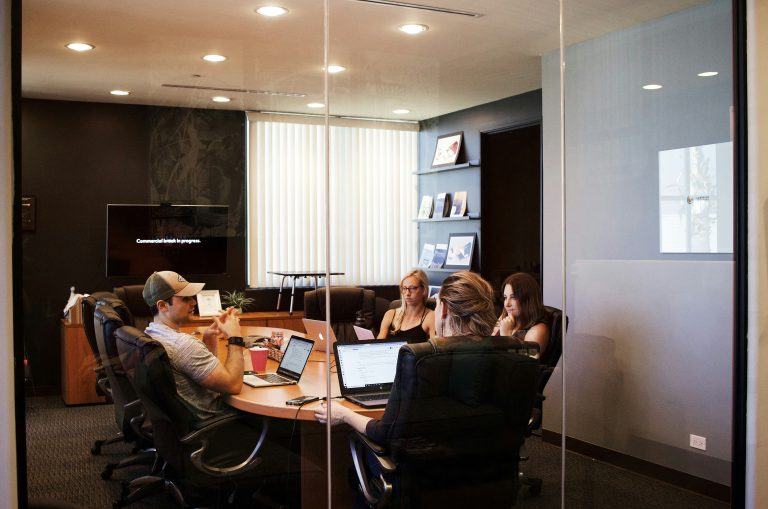Company culture plays a very important role in the success of an organization in today’s competitive business world. It is responsible for bettering employee morale, higher productivity, and more loyalty to the organization.It attracts talent, helps to reduce turnover and thus enhances the development of that belongingness feeling inside workers. The most influential department involved is that of Human Resources as the architects of a given company culture; therefore they put up an environment from where achievements of the stated mission, values, and strategy should emerge.
This blog will explore critical roles of HR in building or establishing a strong company culture, strategies that HR should implement, and benefits reaped by an organization through their thriving culture.
About Company Culture
Before discussing the role of HR, it is essential to determine what company culture is. Company culture is basically referred to as the common values, beliefs, and behaviors that influence how individuals should associate with each other and with the organization in general. Basically, its influence ranges from communication style to work ethics and decision-making. The key strength of a strong company culture is that it provides meaning, community, and a way of being aligned with the overall goals of an organization.
Company culture tends to be made up of two components:
- The visible culture: This refers to the obvious aspects such as dress code, office layout, working hours, and even employee benefits.
- The invisible culture: This includes shared values, trust, leadership style, and underlying assumptions about how things work in the company.
Human Resources therefore takes on a vital role in managing and nurturing both the visible and invisible strands of culture.
Role of HR in Shaping Company Culture
- Recruitment and Onboarding
The first point of contact that an employee has with the company culture is during the hiring process. HR has a significant role in selecting people who have the core values and fit into the company culture. Through strategic recruitment, HR ensures that the candidates not only have the required skills but also fit into the cultural framework of the company. This can include evaluating cultural fit along with technical capabilities at the interview stage, or using personality tests, or asking questions that will reveal the candidate’s values and work style.
Once employees are selected, HR will onboard the new hires into the culture of the company. Proper onboarding includes all the facts about the organization’s history, values, and mission, plus its expectations and social norms. Proper onboarding would make the new employees welcome and understand their roles in how they contribute to the goal of the company.
- Clear Value Setting and Expectation
HR assists in setting up and communicating the core values of the company, which employees should adhere to and make decisions accordingly. This affects the overall culture of the organization. A company might focus on innovation, collaboration, transparency, or customer satisfaction. These values, therefore, have to be stated clearly and ingrained in each aspect of the employee experience by HR.These standards help employees genuinely embrace your brand.
For instance, if the company values innovation, the HR can make a work culture that fosters discussion of new ideas among employees and experimentation. If the value placed is on collaboration, the HR can help organize a team-building event and foster interdepartmental projects, so that there are open communication lines. The professionals have to see that these values get embedded into performance review, leadership, and company policy.
- Employee Engagement and Well-being
HR has a huge role to play in promoting employee engagement and it is directly related to organizational culture. Engaged employees feel connected to the organizational mission and culture. Hence, for this purpose, HR has to create motivated, satisfied, and interested employees through programs and initiatives.
Employee well-being initiatives such as mental health support, flexible working hours, wellness programs, and a healthy work-life balance are key to developing a supportive culture. This can be achieved by regularly engaging with employees, amplifying their employee voice through opportunities for feedback, and taking prompt action on concerns they may raise. Acknowledgment and rewarding employees is also helpful in reinforcing positive behaviors toward the organization’s values.
- Leadership Development and Support
The leadership team in a company is one of the most important determinants of its culture. HR is key in the development and support of leaders who represent the culture of a company. The development of leadership in an organization helps ensure that managers and executives have the necessary skills to lead the organization in collaboration, transparency, and alignment with the values of the company.
Mentoring or coaching is another avenue HR can use in ensuring that all levels of leadership serve as a positive role model and exemplifies the standards of the culture. Employees will follow these leadership practices if there is a correlation between leadership practice and cultural values.
- Training and Development
Continuous learning is one of the strong company cultures. HR has to ensure that employees have access to all the training and development activities that align with both their personal growth and organizational cultural values. This would include from skill-building workshops to diversity and inclusion training and courses even specific company practices.
HR could also facilitate cross-training programs to orient employees about the nature of other functions within the company, thus bringing the organization towards a collaborative and knowledge-sharing culture. Through investments in professional development of its employees, HR enables employees to feel valued and then motivated to contribute positively toward the success of an organization.
- Facilitate Communication and Feedback
Clear, open, and transparent communication is what makes for a strong company culture. HR has to design channels that facilitate the idea of the employees expressing their thoughts, concerns, and feedback. It can be regular town hall meetings, employee surveys, one-on-one check-ins, or even a suggestion box.
This means the culture of giving and receiving feedback will have to do with growth and improvement at every level in the organization. HR can help normalize the constructive feedback process. It will allow employees to give and receive feedback positively. When their voices are heard and their suggestions matter, employees are going to participate more in and contribute more to the organizational culture.
- Promoting Tools for Building Company Culture
Implementing tools like a website builder with a booking system can play a vital role in supporting HR’s efforts to create and maintain a strong company culture. Such tools allow organizations to streamline internal operations and enhance employee engagement by making processes, such as scheduling one-on-one meetings, training sessions, or team-building activities, seamless and efficient. By incorporating booking systems into their websites, HR departments can facilitate transparent communication and provide employees with easy access to resources that align with the company’s cultural values. This integration helps reinforce a culture of collaboration, accessibility, and support within the organization.
- Acknowledge and Reward Culture-Linked Behaviour.
One of the high-impact tools in enforcing company culture is the recognition and reward system. Programs can be designed by the HR to recognize employees who are showing behaviors that are valued in the company and culturally appropriate. For example, employee-of-the-month programs, team celebrations, or even bonuses may be directly linked to these cultural contributions.
When employees are seen to be rewarded for the positive behaviors, they will replicate those behaviors. The loop becomes positive and increases in strength over time to solidify the company culture.
Benefits of Good Company Culture
- Enhanced Employee Retention: The employees feel appreciated and devoted to the vision of the company, therefore, reduced turnover
- Increased Productivity: Involved employees are motivated and work efficiently
- Capacity to Attract Good Talent: Positive culture in the company attracts skillful talents
- Improved Cooperation: Good company culture creates teamwork and innovation
- Better Brand Reputation: Good culture positively influences public image and customer loyalty.
Conclusion
A solid company culture has the power of driving employee satisfaction, boosting innovation, and enhancing reputation. It unifies an inspired workforce for better performance, higher retention rates, and long-term business success. The core of the organization’s investment in culture ensures its success and sustainability.
 Mayur Bhatasana, Co-Founder & CEO of Jeenam Infotech LLP, is dedicated to propelling B2B and SaaS startups to remarkable rankings through the art of strategic link building. 🚀
Mayur Bhatasana, Co-Founder & CEO of Jeenam Infotech LLP, is dedicated to propelling B2B and SaaS startups to remarkable rankings through the art of strategic link building. 🚀




























